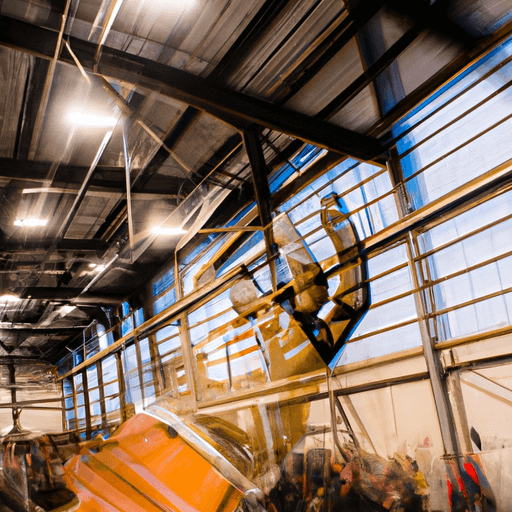Exploring the Potential Impact of Artificial Intelligence on Human Employment
In recent years, artificial intelligence (AI) has been taking on an increasingly integral role in our lives, from virtual assistants to self-driving cars. With this technology advancing at a rapid pace, it’s no surprise that AI is having an effect on the labor market. In this article, we’ll explore the potential impact of AI on human employment, including job automation, shifts in the labor market, and how businesses and workers can benefit from technological advances. We’ll also consider the implications of AI for both blue-collar and white-collar workers, and explore the ethical considerations of relying on AI-powered systems.
Job Automation
One of the most obvious effects of AI on human employment is job automation. AI-powered systems are increasingly being used to replace manual labor, from factory workers to customer service representatives. The result is that many jobs that were once done by humans are now being done by machines, leading to a decrease in the number of jobs available. This shift is particularly evident in the manufacturing sector, where robots are being used to perform tasks that were once done by humans.
Shifts in the Labor Market
The use of AI is not only creating job losses, but it is also leading to shifts in the labor market. As AI-powered systems become increasingly capable of performing tasks that were once done by humans, the demand for certain skills and abilities is changing. For example, AI-powered systems are increasingly being used to analyze and interpret data, meaning that those with data analysis skills are in high demand. Similarly, those with programming and coding skills are increasingly sought after as AI-powered systems require more sophisticated programming.
Business and Worker Benefits
Despite the potential disruption caused by AI, there are also ways in which businesses and workers can benefit from advances in the technology. For businesses, AI can be used to increase efficiency and productivity, leading to higher profits. For workers, AI can also be used to increase efficiency, allowing them to spend less time on mundane tasks and more time on tasks that require creativity and problem-solving. AI can also be used to reduce the number of errors made in a task, allowing businesses and workers to produce higher-quality results.
Implications for Blue-Collar and White-Collar Workers
The implications of AI on human employment are not limited to job automation and shifts in the labor market. AI is also having an effect on both blue-collar and white-collar workers. For blue-collar workers, AI-powered systems are increasingly being used to perform tasks that were once done by humans, leading to job losses and disruption in the labor market. For white-collar workers, AI is being used to automate mundane tasks, allowing them to focus on more creative and complex tasks.
Ethical Considerations
Finally, it is important to consider the ethical considerations of relying on AI-powered systems. As AI-powered systems become increasingly capable of performing tasks that were once done by humans, it is important to consider the implications of this technology on human employment. Additionally, it is important to consider the ethical implications of relying on AI-powered systems, as these systems are increasingly being used to make decisions that could have a significant effect on people’s lives.
Conclusion
In conclusion, AI is having a significant effect on human employment, from job automation to shifts in the labor market. While these changes can lead to disruption in the labor market, there are also ways in which businesses and workers can benefit from advances in AI technology. Additionally, it is important to consider the implications of AI for both blue-collar and white-collar workers, as well as the ethical considerations of relying on AI-powered systems.


















Comments
Leave a Comment